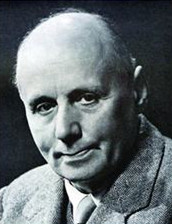Learning by Doing: What I Learned from My Students
Issue date:2018-09-12Michael Martell is an English teacher at our College. He got a BA in English from Wake Forest University and a MA in Humanities from University of Chicago. After graduation he started his career as a teacher of English and worked in Spain, US and China. He speaks and writes Chinese. In this article, he shares his observation on how UWC's experiential education encourages students and teachers to put knowledge into practice.
One of his students commented:"Michael is one of the most popular teachers in our College, we can feel his love and passion for teaching. We enjoy his classes and have been inspired by his love for and rich knowledge in language and literature and his good command of different languages. He is also willing to share his life experience with us and give us suggestions. We regard him as more than a teacher but also a friend."
In 11th grade, my English teacher said to me, “I can’t imagine you making it in the real world.” I knew that she was trying to make a joke, but her off-handed comment still irked me a bit. I had only taken one class with her. How could she know how I would fair in the ‘real world’? So, before I could stop myself, I responded, “That’s okay. I’ll just become a teacher, then.”
What’s somewhat ironic is that I really did become a teacher. At that time, my thinking was problematic: I thought that being a teacher was a profession that is somehow removed from the ‘real world’ because it was subsumed by the same bubble that surrounded my school life. However, my English teacher’s evaluation of me seemed to be based on the same misconception: her comment and others like it make students feel that school life and life in the ‘real world’ are somehow different and, at the same time, imply that what we do in school will not help us to prepare for what we will do in the future.
One of the reasons why I wanted to join the UWC community as a teacher was that the UWC philosophy is based on educational principles that work against this misconception. Kurt Hahn, the founder of UWC, placed a lot of emphasis on experiential learning, a pedagogy that could be boiled down to the simple phrase “learning by doing” or, to use a Chinese idiom, “Zhi Xing He Yi,” a phrase that can be roughly translated as ‘knowing and doing as one.’ As a teacher, I frequently reflect on the truth of these axioms.

Haoru Yang, holding her self-published book A Family on the Plateau, with her Passion Project supervisor, Michael Martell.
After arriving at UWC, our CAS coordinator explained why our CAS program is called “Zhi Xing.” It is an allusion to “Zhi Xing He Yi,” a phrase from an article written by Ming dynasty philosopher Wang Yangming that expresses a concept akin to that of experiential learning. Originally, Wang’s article was written as a response to Gu Dongqiao’s “知先行后” school of thought (meaning, knowledge first, action later) . In opposition to Gu Dongqiao, in Wang Yangming’s view, what you understand and how you act based on that understanding are inseparable. He also wrote “一念发动处更是行” meaning, even thinking about something is a kind of action. If you are thinking about something, you have already begun to act. Though these claims seem tautological to a modern listener, Wang Yangming’s phrase “knowledge and action as one” is meaningful on many levels. For example, it also applies to one’s personal ethics: you should practice what you preach, not avoid inconvenient truths, and, above all, avoid hypocrisy. After hearing this explanation, I was even more eager to see how experiential learning was put into practice at UWC Changshu China.
My first year at UWC Changshu China did not disappoint me. In terms of experiential learning, what I saw students doing both in and outside of the classroom exceeded my already high expectations, perhaps for two key reasons: because students come from so many different places, we all have the chance to see the world from a different perspective; in addition, at UWC students and teachers alike bear an equal responsibility to uphold the values of “Zhi Xing He Yi”. Students not only learn from teachers, but also learn independently and from their peers. They also share what they have learned with the communities they are a part of. Students act as teachers, and teachers as students.
Global Issues Forum
Our Global Issues Forum (GIF) is an apt example of how, at UWC Changshu China, students and teachers are equal stakeholders in upholding the ideals of “Zhi Xing He Yi”. Every Monday, students and teachers both have the chance to sign up to present a global issue to the whole school community, and then all students and teachers have a chance to discuss the issue. In the discussion, all present have the chance to express their point of view without fear of judgment. Perhaps the GIF that had the deepest impression on me was about the influence that the United States government has had on Afghanistan and Pakistan. Three students not only presented statistics and facts based on research, but also shared their personal experiences living in these two countries. In my home country (The U.S.), there are very few opportunities to view these issues from this point of view.
Passion Project
Another good example of students acting as teachers and learning by doing is the 10th grade Passion Project. This year I had the chance to act as the passion project supervisor to five students. From the beginning to the end, each student works independently on a research project: designing their own research project and creating their own products to present to the school community. The Passion Project not only gives students a chance to learn by doing, but also gives the supervisors the chance to learn from students. For example, to share his passion for hard-tipped calligraphy, one of my students researched how to teach others hard-tipped calligraphy, and then created his own curriculum. In addition, two other students researched the history of their respective hometowns, and then wrote original short stories based on their research and experiences. In the process, each of these three students faces considerable difficulties, but succeeded in the end. Regardless of whether or not they reached their original goals, they all learned through experience and developed new skills along the way. Now, even though the Passion Project is over and school is no longer in session, there are still several students who are still working on their project, proving that the most lasting forms of education require students to take their learning into their own hands and, once they do, they not necessarily need teachers.

Zhiyu Deng exhibiting his product at the Passion Project Exhibition
Project Week
I would be remiss not to say that the Zhi Xing program also gives students the chance to learn by doing, and even act as teachers. This year I had the opportunity to serve as the supervisor for the Creative Writing Zhi Xing and participate in the 10-week Chinese Calligraphy Zhi Xing. In addition, for project week, another two teachers and I accompanied sixteen students on a service-learning trip at Hainan Baoting Siyuan experimental school. That week, all students took on the role of teachers: they planned and taught lessons, and then, in the evenings, reflected on how they could improve their teaching methods and help their students learn more effectively. For example two students in the group, one of whom was Japanese, planned a class on Japanese culture that did not go too well on the first day. However, after reflecting, they modified their plan to make their lesson more interactive, which made the students more willing to participate actively. That being said, by the end of the week, all of the UWC students in the group felt that they had learned much more than they managed to teach. Because about 90% of the students were of the Li ethnic group, the local students gave us a chance to experience their local culture through dance, music, and art lessons. However, even more importantly, all of the UWC students had the experience of being a teacher. In my view, in Zhi Xing activities, students and teachers are on the same footing: regardless of your role, the impetus is on you to make the experience meaningful.

UWC students participating in a traditional Bamboo Dance class of with Baoting Siyuan Experimental School students in Hainan.
In high school, I made the mistake of thinking that school life was somehow separate from the “real world.” Now, though, I think that drawing such a distinction only magnifies a common problem: that schooling does not fully prepare students for what they do after they graduate. Though this problem may be inevitable, I believe that it is still worth striving to bridge the gap between the educational institution and the outside world as much as possible. What impresses me most about students here at UWC is their commitment to doing just that. Unlike my high school self, most students here recognize their place in various communities—both local and global—and strive to make a positive impact. Such a commitment not only requires the development of skills and acquisition of knowledge, but also a willingness to face challenges independently and take risks. Whether it be in or outside of the classroom, the UWC community encourages all of its members to recognize their place in the “real world” by trying to put their ideals into practice, practice what they preach, and bridge the gap between knowledge and action.










